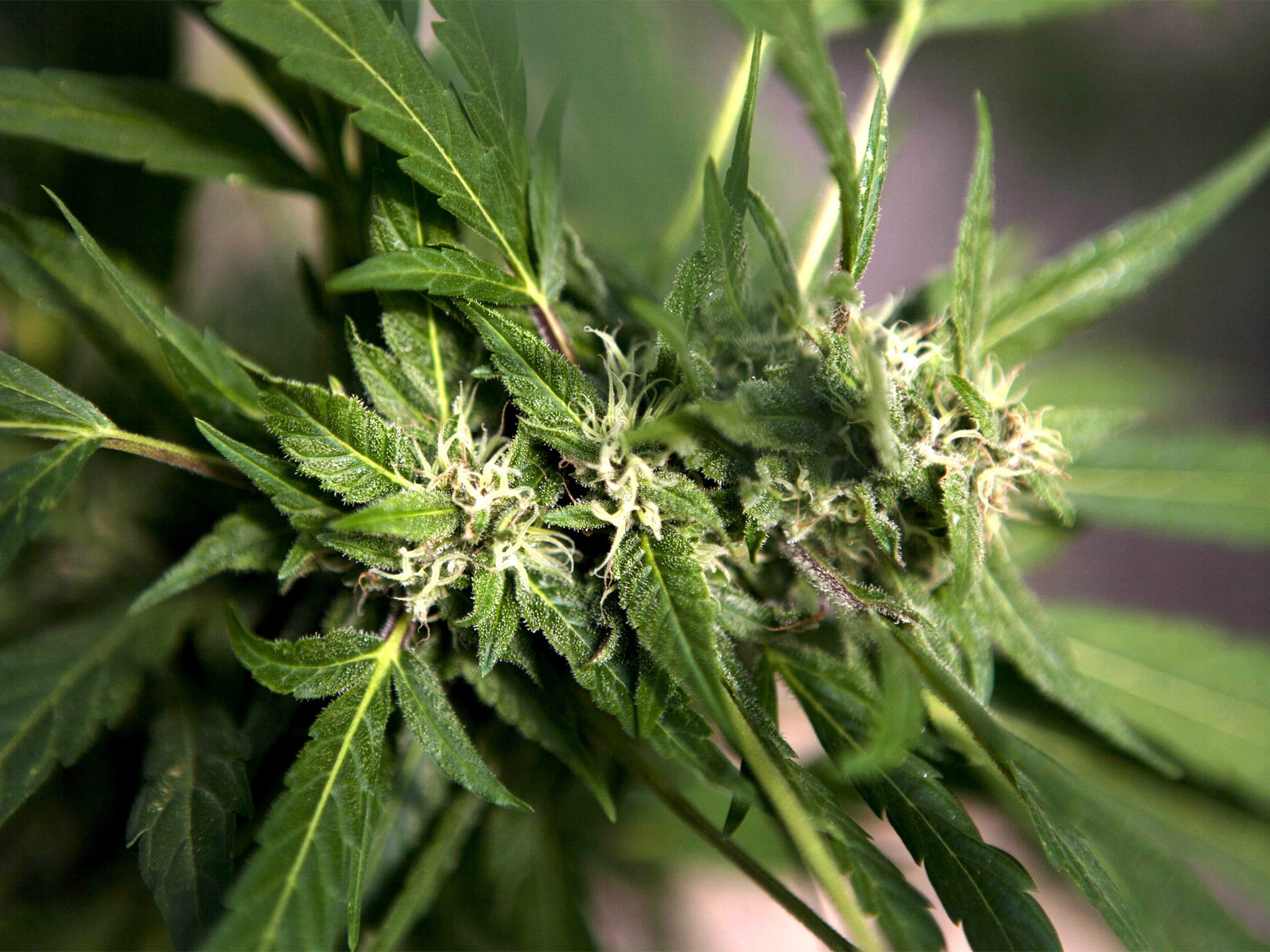Smoking cannabis could change the part of the brain dealing with motivation, according to one new study

Your support helps us to tell the story
From reproductive rights to climate change to Big Tech, The Independent is on the ground when the story is developing. Whether it's investigating the financials of Elon Musk's pro-Trump PAC or producing our latest documentary, 'The A Word', which shines a light on the American women fighting for reproductive rights, we know how important it is to parse out the facts from the messaging.
At such a critical moment in US history, we need reporters on the ground. Your donation allows us to keep sending journalists to speak to both sides of the story.
The Independent is trusted by Americans across the entire political spectrum. And unlike many other quality news outlets, we choose not to lock Americans out of our reporting and analysis with paywalls. We believe quality journalism should be available to everyone, paid for by those who can afford it.
Your support makes all the difference.Smoking cannabis just once or twice a week could result in “major” changes to areas of the brain important for emotion and motivation, US scientists have said.
In a study which one expert said challenged the idea that “casual” marijuana use is largely harmless, doctors found that young adults who used the drug only recreationally had “abnormal alterations” to the nucleus accumbens and the amygdala.
Previous studies have shown that regular cannabis use in young adults can affect the brain's ability to produce the brain's "reward chemical" dopamine, which is usually produced during pleasurable experiences such as sex, eating or social interaction.
In this latest study, conducted in a relatively small sample of 40 people aged between 18 and 25, researchers from Harvard University and Chicago-based medical group Northwestern Medicine, used neuroimaging techniques to analyse the brains of cannabis users, as well as non-users.
They found that the nucleus accumbens was unusually large in the cannabis users, while the amygdala also had noticeable abnormalities.
Anne Blood, assistant professor of psychiatry at Harvard Medical School said that the areas affected were "core, fundamental structures of the brain".
"They form the basis for how you assess positive and negative features about things in the environment and make decisions," she said.
The severity of abnormalities in these regions of the brain was directly related to the number of joints a person smoked per week, according to the study, published in the Journal of Neuroscience on Wednesday. The more joints a person smoked, the more abnormal the shape, volume and density of the brain regions, but the effect was noticeable even in those who smoked once or twice a week.
However, experts in the UK said that the study group was small and that more research was needed over a longer timescale to establish whether cannabis smoking caused the unusual brain features, or whether people with such brain features were more likely to smoke cannabis in the first place.
Around one million people aged between 16 and 24 use cannabis in the UK per year, according to the charity DrugScope. Its use has been reported to cause anxiety and paranoia in some users and in rarer cases may be a trigger for underlying mental health problems.
Dr Michael Bloomfield, clinical research fellow at the UK's Medical Research Council (MRC), said that the study added to the MRC's own research which found that heavy cannabis use in adolescence is associated with changes in chemical connections in the brain.
“Taken together, these studies therefore have implications for understanding some of the mental health problems that are associated with cannabis use including schizophrenia, particularly as the younger people are when they use start using cannabis, the higher the risk of mental illnesses down the line,” he said.
Peter Jones, professor of psychiatry at the University of Cambridge, said the study was interesting but inconclusive.
“The research is limited as it is only a small study, it is not known whether the reported changes in the brain are necessarily bad... Furthermore, there were only 40 people in the study and as they didn’t measure the brains before and after, it’s possible that people with a larger accumbens are more likely to take cannabis.
“The main point is that, as usual, more research is needed.”
Join our commenting forum
Join thought-provoking conversations, follow other Independent readers and see their replies
Comments